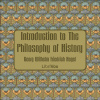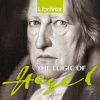Georg Wilhelm Friedrich Hegel - Phenomenology of Mind, Volume 1
Georg Wilhelm Friedrich Hegel
100%
Speed
Early Modern
722
Summary
Phänomenologie des Geistes (1807) is Georg Wilhelm Friedrich Hegel's most important and widely discussed philosophical work. Hegel's first book, it describes the three-stage dialectical life of Spirit. The title can be translated as either The Phenomenology of Spirit or The Phenomenology of Mind, because the German word Geist has both meanings. Phenomenology was the basis of Hegel's later philosophy and marked a significant development in German idealism after Kant. Focusing on topics in metaphysics, epistemology, physics, ethics, history, religion, perception, consciousness, and political philosophy, The Phenomenology is where Hegel develops his concepts of dialectic (including the Master-slave dialectic), absolute idealism, ethical life, and Aufhebung. The book had a profound effect in Western philosophy, and «has been praised and blamed for the development of existentialism, communism, fascism, death of God theology, and historicist nihilism.» — Summary by Wikipedia
More from Georg Wilhelm Friedrich Hegel
More from Early Modern
Authorization
By logging in, you agree to the terms and conditions.















No comments